How scratch-resistant is quartz?
dukehoops02
9 years ago
Related Stories
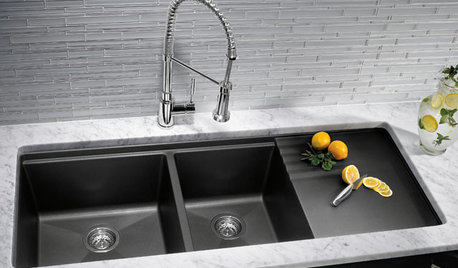
KITCHEN DESIGNKitchen Sinks: Granite Composite Offers Superior Durability
It beats out quartz composite for strength and scratch resistance. Could this kitchen sink material be right for you?
Full Story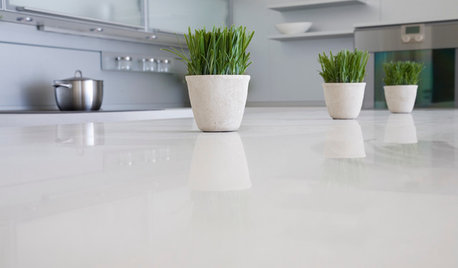
KITCHEN DESIGNKitchen Counters: Stunning, Easy-Care Engineered Quartz
There's a lot to like about this durable blend of quartz and resin for kitchen countertops, and the downsides are minimal
Full Story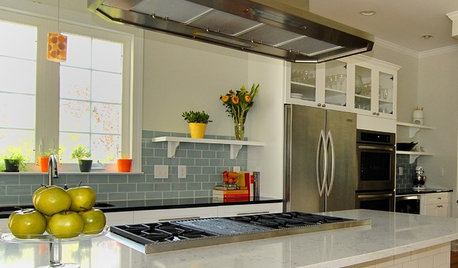
KITCHEN DESIGNGet Quartz and Porcelain Surfaces Super Clean
These cleaning tips for quartz, travertine, porcelain and engineered stone will help keep your countertops and sinks looking spotless
Full Story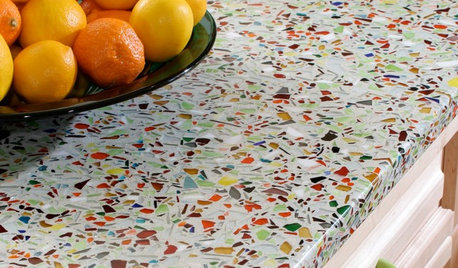
KITCHEN DESIGNKitchen Counters: Sturdy, Striking Recycled Glass With Cement
Ecofriendly and full of character, this heat- and scratch-resistant material is a great fit for custom kitchen counters
Full Story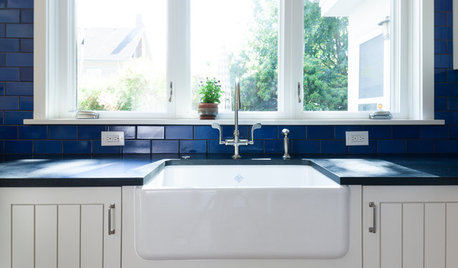
KITCHEN DESIGNKitchen Sinks: Fireclay Brims With Heavy-Duty Character
Cured at fiery temperatures, fireclay makes for farmhouse sinks that just say no to scratches and dents
Full Story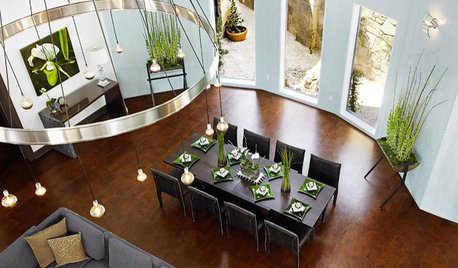
DECORATING GUIDESDiscover the Unstoppable Advantages of Cork for the Home
Look beyond wine stoppers to see cork's ecofriendliness, durability, fire resistance and antimicrobial nature for all kinds of home products
Full Story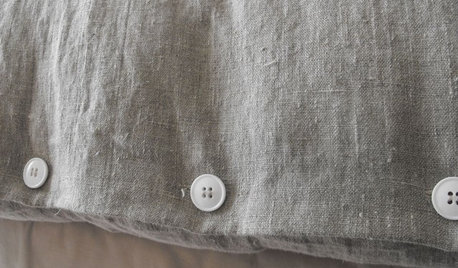
UPHOLSTERYFabric Focus: There's Nothing Quite Like Linen
Classic, understated, durable and mildew-resistant, linen is a casual fabric fit for any home
Full Story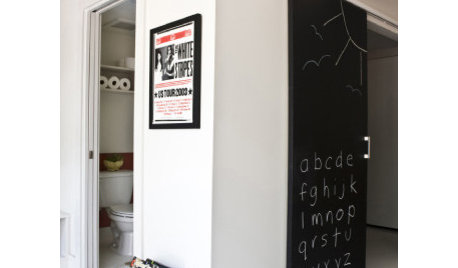
Chalk It Up
It's hard to resist the lure of a blank slate. Add chalkboard paint to any part of your home and watch imagination take hold
Full Story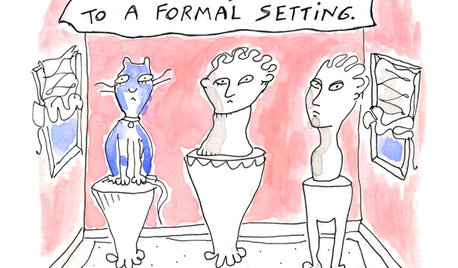
MOST POPULAR7 Ways Cats Help You Decorate
Furry felines add to our decor in so many ways. These just scratch the surface
Full Story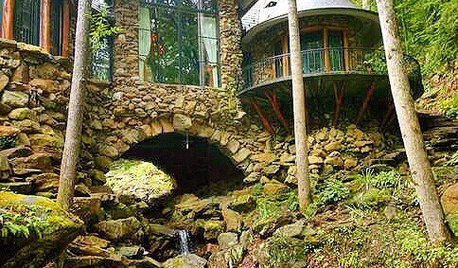
FUN HOUZZ31 True Tales of Remodeling Gone Wild
Drugs, sex, excess — the home design industry is rife with stories that will blow your mind, or at least leave you scratching your head
Full Story





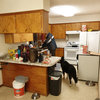
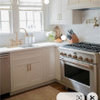
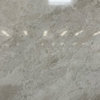
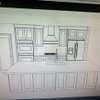
sombreuil_mongrel
Gracie
Related Professionals
Georgetown Kitchen & Bathroom Designers · Wentzville Kitchen & Bathroom Designers · Bloomingdale Kitchen & Bathroom Remodelers · Broadlands Kitchen & Bathroom Remodelers · Crestline Kitchen & Bathroom Remodelers · Lomita Kitchen & Bathroom Remodelers · Spokane Kitchen & Bathroom Remodelers · Bonita Cabinets & Cabinetry · Christiansburg Cabinets & Cabinetry · Citrus Heights Cabinets & Cabinetry · Forest Hills Cabinets & Cabinetry · Manville Cabinets & Cabinetry · Red Bank Cabinets & Cabinetry · Wadsworth Cabinets & Cabinetry · Channahon Tile and Stone Contractorssjhockeyfan325
chedanemi
Joseph Corlett, LLC
Gracie
kevdp4
illinigirl
Gracie
Bunny
coco4444
Joseph Corlett, LLC
Gracie
Joseph Corlett, LLC
sombreuil_mongrel
Gracie
Granite City Services
jellytoast
Joseph Corlett, LLC
Joseph Corlett, LLC